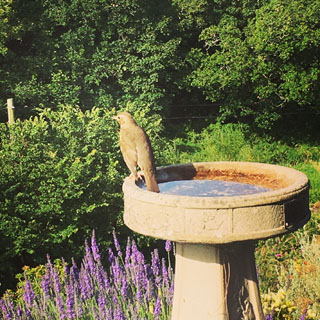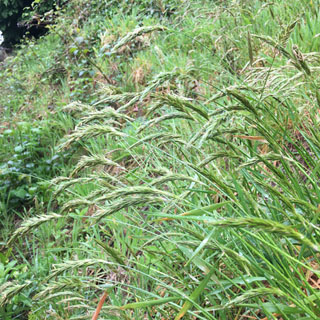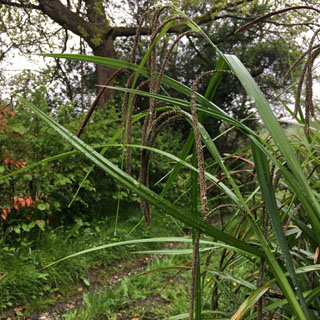 Now, here’s something we all can do! Last month I mentioned that Sunday 3rd May is designated by the Wildlife Trusts as International Dawn Chorus Day. It is always celebrated on the first Sunday in May.
Now, here’s something we all can do! Last month I mentioned that Sunday 3rd May is designated by the Wildlife Trusts as International Dawn Chorus Day. It is always celebrated on the first Sunday in May.
Usually groups get up at about 4.30am and go out to woodlands, parks, heaths or rivers to listen to the wonders of the dawn chorus, just enjoying the sounds that the birds make at the height of the courtship season. It really does not matter whether you know the names of the birds or not. Just listening lifts the spirit and makes you feel better.

So here’s the challenge!
Obviously going off on an organised event is not going to happen this year, but you can still enjoy it and participate by setting your alarm, aiming to be ready at 5.00am, either listening silently from your open window or, wrapped up, with insecticide at the ready, you could go outside and perhaps take part while sitting on a deckchair or bench in your garden.

It really is glorious; but the symphony is soon over, as the twilight fades and the sun emerges, so the birds begin to go quieter themselves, except perhaps for the garden songbirds; the wren, robin, blackbird, song thrush and the rich, fluty sounds of the blackcap continue. And out over the fields, high up, the skylark’s wonderful song, carries amazingly for great distances.
Bird song does continue during the morning but now it is muted and occasional, and in the afternoon it becomes very quiet.
 However, if you are lucky, just before dusk, there will be another chorus to round off your day. You will never forget it.
However, if you are lucky, just before dusk, there will be another chorus to round off your day. You will never forget it.
Just in case you want to know more I would recommend the following sources of online help, all free.
British Trust for Ornithology – BTO Bird Song Basics Video series.
rspb.org.uk/birds-and-wildlife/bird-songs
The Woodland Trust – identify-bird-song.
For the really serious though try Xeno-canto. This has bird songs and calls from over all the world, some 400,000 entries uploaded and annotated by citizen science volunteers!
Grassland survey

The training for and the undertaking of the grassland survey on the Roseland will not be happening this year. We are talking with Cornwall Wildlife Trust about doing the training next May (2021) and then we can do the survey over that summer.
In the meantime when you are out and about over the next few months, spend some time looking at all the different grasses you see in the fields, hedgerows and open spaces.
Choose three or four of the ones that catch your eye and look for their distinctive features. You may not be able to identify them but you could call them A, B, C, & D. or any name that helps you identify them.
 Get used to identifying them amongst other species and when the training happens next year, if you haven’t already worked out their name, you can give them the name they’re commonly known by and from then on you can be the expert on identifying that species.
Get used to identifying them amongst other species and when the training happens next year, if you haven’t already worked out their name, you can give them the name they’re commonly known by and from then on you can be the expert on identifying that species.
Graham (gwhillside@btinternet.com) will still collect the details of anyone interested in the training next year.
Summer outdoor events.
If or when Lockdown is lifted we will let you know of activities and field events in which you may wish to participate. For this we will issue short details via the Wild Roseland website and facebook pages, Mailchimp, Roseland Online, village notice boards and, if practical, the Roseland magazine.
So watch this space.
Thank you for supporting Wild Roseland.
Contributors:
Article by David Hall. Edited by Tara Robinson.
Wild Roseland is a group of volunteers who care passionately about looking after the nature and landscape of the Roseland peninsula in south Cornwall. Through a number of initiatives and projects, the aim is to inspire and enhance the conservation of this special place for all.
Image credits:
Skylark: Richard Stephen Cliff
Blackbird, Robin: David Hall
Song Thrush, Grasses x2: Tara Robinson
